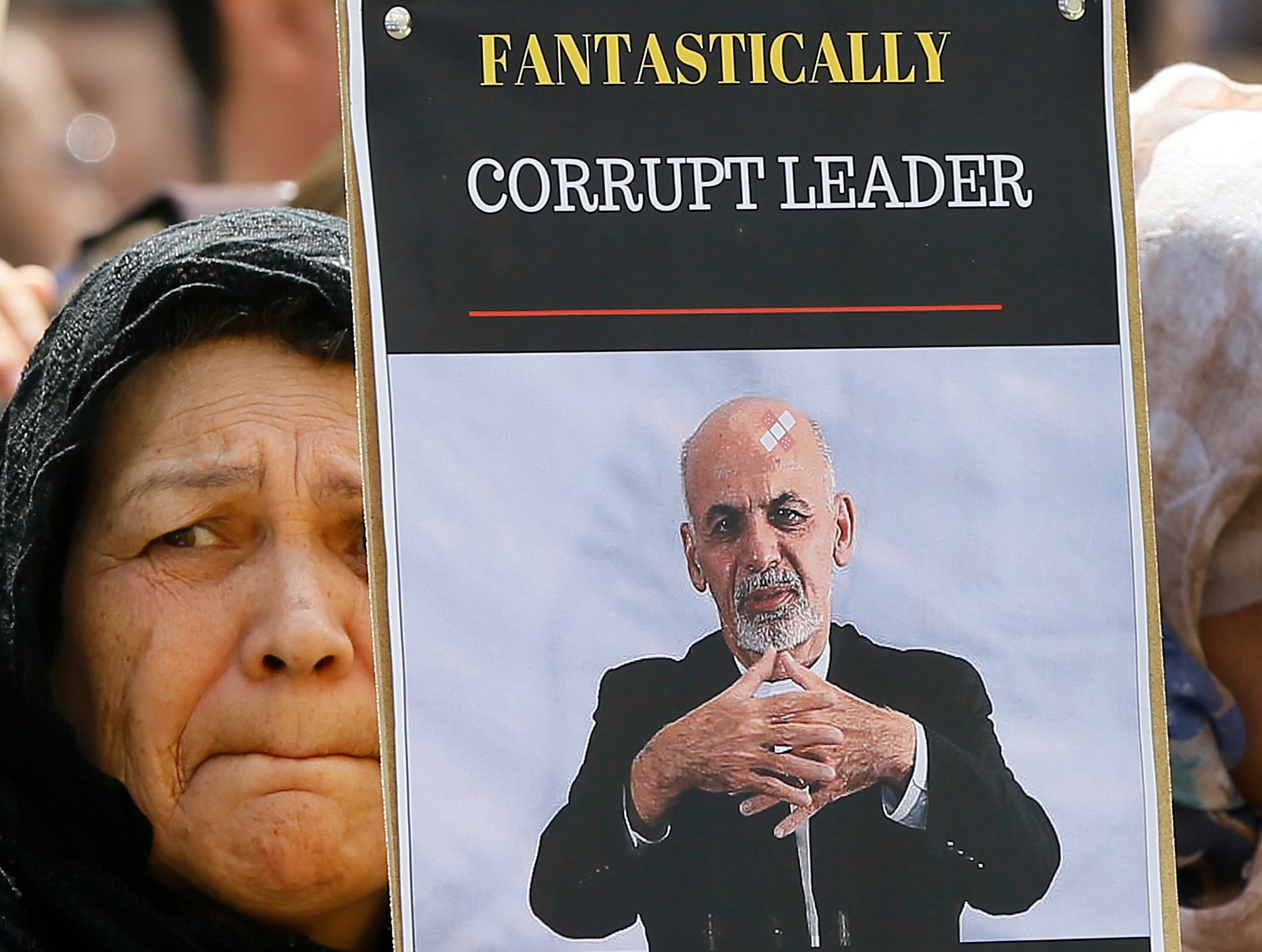‘I’m pretty burned out’: Afghan president Ghani’s daughter in New York complains of ‘vitriol’ directed at family over decision to flee
Mariam Ghani says she’s on the receiving end of ‘vitriol’ after her father Ashraf Ghani left Afghanistan

Your support helps us to tell the story
From reproductive rights to climate change to Big Tech, The Independent is on the ground when the story is developing. Whether it's investigating the financials of Elon Musk's pro-Trump PAC or producing our latest documentary, 'The A Word', which shines a light on the American women fighting for reproductive rights, we know how important it is to parse out the facts from the messaging.
At such a critical moment in US history, we need reporters on the ground. Your donation allows us to keep sending journalists to speak to both sides of the story.
The Independent is trusted by Americans across the entire political spectrum. And unlike many other quality news outlets, we choose not to lock Americans out of our reporting and analysis with paywalls. We believe quality journalism should be available to everyone, paid for by those who can afford it.
Your support makes all the difference.Mariam Ghani, the daughter of exiled Afghanistan president Ashraf Ghani, said she has been “pretty burned out” and has been on the receiving end of “vitriol” after her father left their home country as the Taliban wrested control.
Ms Ghani, a 42-year-old visual artist and filmmaker who lives in Brooklyn in New York city, shared a list of resources in an Instagram post that individuals and activists can use to help Afghanistan’s citizens. She also thanked those who expressed solidarity with her.
“To everyone who has checked in and reached out in solidarity over the past days: thank you,” Ms Ghani said in the post. “It has meant a lot. I’m pretty burned out, but I hope I’ll be able to reply to you all individually at some point,” she added.
Ms Ghani’s father fled the country as the Taliban took control of large swathes of Afghan territory. Mr Ghani left with four cars and a helicopter full of cash, some of which he had to leave at the tarmac as it was difficult to fit all of it inside the chopper, according to the Russian embassy in Kabul.
The whereabouts of the 72-year-old exiled president, who was backed by western governments including the US, are currently unclear, with some media reports saying he was in Tajikistan.
Mr Ghani, in a Facebook post, said he left Afghanistan in order to avoid more bloodshed in his country, even as some media reports said his hasty departure hampered peace talks and a smooth transfer of power with the Taliban.
It is unclear if Ms Ghani is privy to her father’s whereabouts. In the same Instagram post, she said, in a reply to a user, that there was “lot of vitriol coming my way on social media.”

She also refused to answer questions from a New York Post reporter outside her apartment, according to a report by the newspaper, which described the location of her apartment as “a luxury co-op building on a quiet, leafy block of Clinton Hill, near buzzy restaurants and the Pratt Institute.”
Ms Ghani has had her work featured in some well-known museums across the world, including the Tate Modern in London and the Guggenheim in New York. She released her first feature film What We Left Unfinished, about five films that started but were abandoned during the Communist era in Afghanistan.
A 2015 profile in The New York Times described her as “a feminist, an archivist and an activist, as well-versed in the politics of extraordinary rendition as she is in the very Brooklyn pursuit of homemade chile-passion-fruit sorbet.”
In her Instagram post, however, Ms Ghani did not specifically reference concerns that have sparked across the world about the future of the country’s women.
Taliban rule has in the past been known to marginalise women and other gender minorities, with several atrocities directed against them and their freedoms severely curtailed.
Ms Ghani has, however, liked several posts on Twitter that have criticised the handling of the US’s pullout from the country, a decision that several experts said allowed the Taliban to take control of the country at a rapid pace.
Join our commenting forum
Join thought-provoking conversations, follow other Independent readers and see their replies
Comments